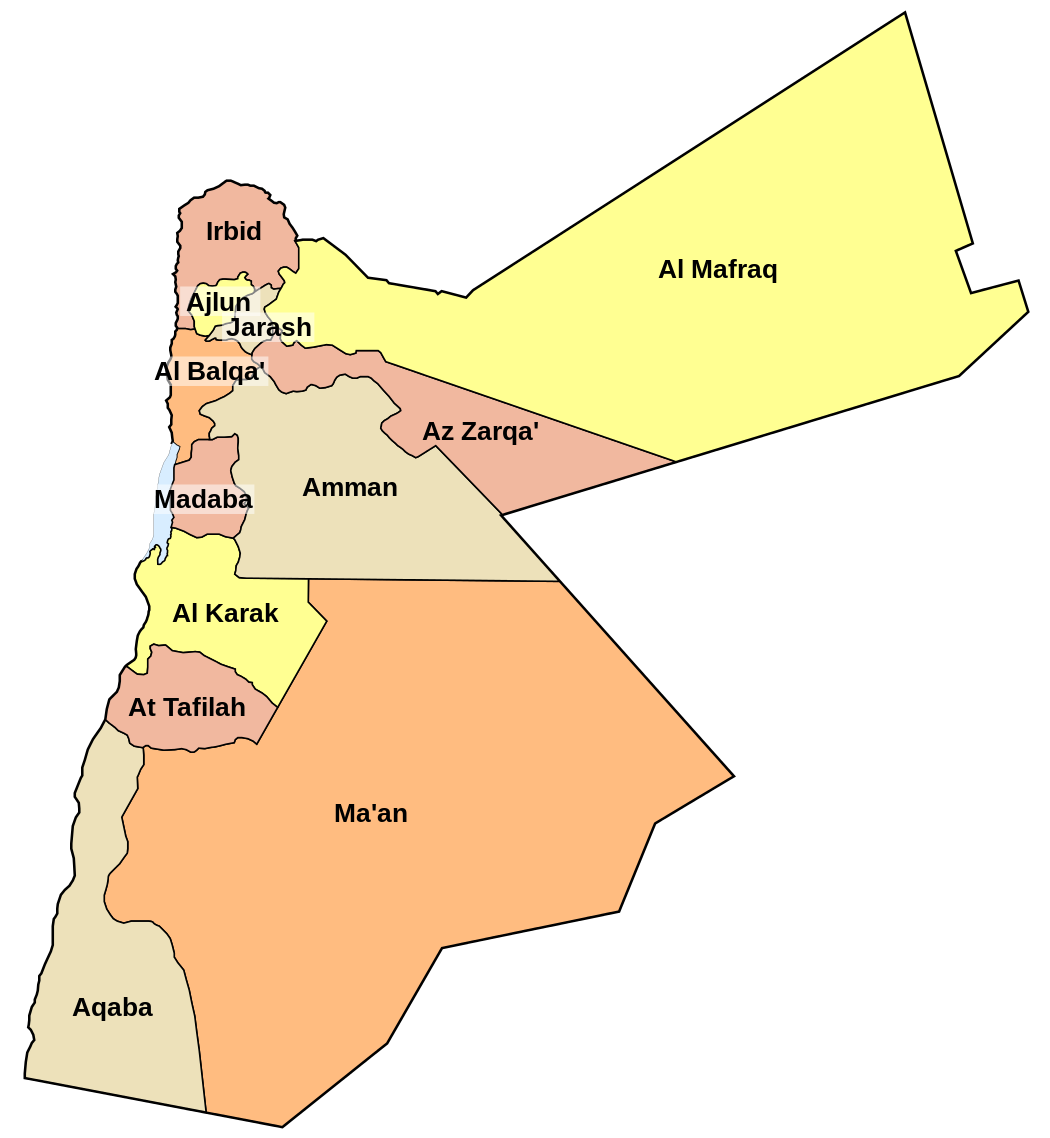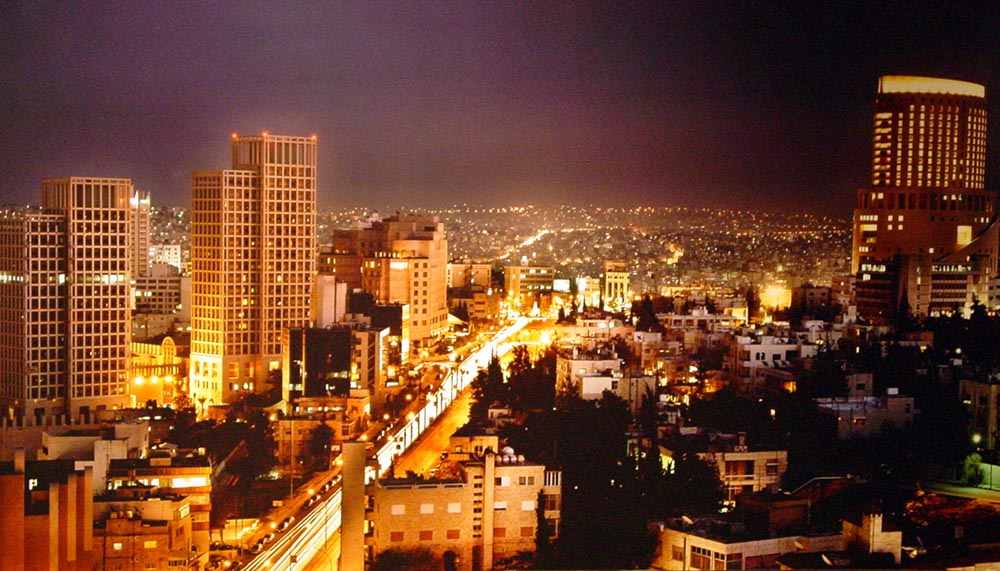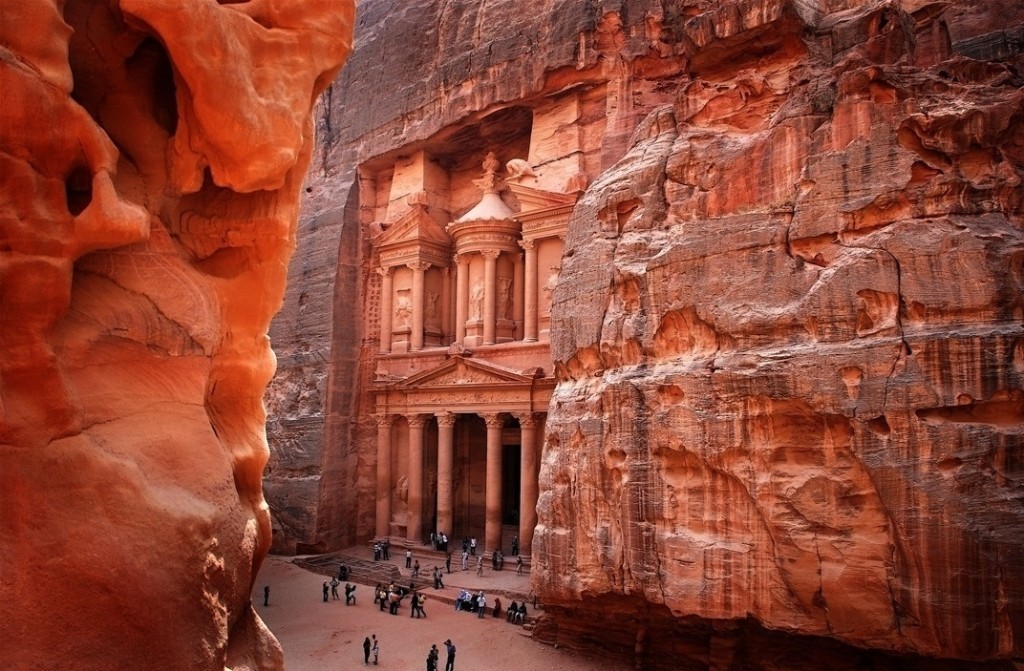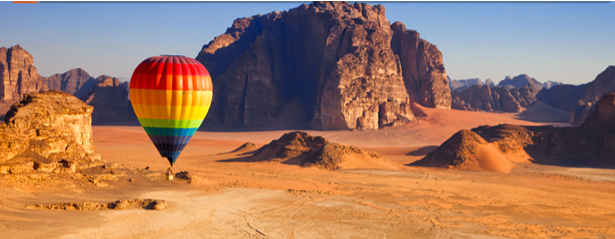Jordan is a land steeped in history. It has been home to some
mankind’s earliest settlements and villages, and relics of many of the world’s
great civilizations can still be seen today. As the crossroads of the Middle
East, the lands of Jordan and Palestine have served as a strategic nexus
connecting Asia, Africa and Europe. Thus, since the dawn of civilization,
Jordan’s geography has given it an important role to play as a conduit for
trade and communications, connecting east and west, north and south. Jordan
continues to play this role today.

AMMAN "A Modern City Built on the Sands of Time"
Amman, the capital of Jordan, is a
fascinating city of contrasts- a unique blend of old and new; deep valleys vs.
high hills, old markets vs. new malls, ancient castles vs. rich villas,
traditional handicrafts vs. modern art, and an old souk vs. a futuristic modern
downtown. It is ideally situated on a hilly area between the desert and the
fertile Jordan valley. The city is enriched in its biblical sites and plethora
of historical attractions. From the pink stones of Petra to the Roman
Amphitheatre in Amman, Jordan unveils its complex history for you to discover.

PETRA “The Rose
City”
Petra,one of the New7Wonders of the World, is
without a doubt Jordan’s most valuable treasure and greatest tourist attraction.
It is a vast unique city, carved into the sheer rock face by the Nabataeans, an
industrious Arab people who settled here more than 2000 years ago, turning it
into an important junction for the silk, spice and other trade routes that
linked China, India and southern Arabia with Egypt, Syria, Greece and Rome.

WADI RUM
A maze
of monolithic rockscapes rise from the desert floor to height of 1,750m
creating a natural challenge for serious mountaineers. Hikers can enjoy the
tranquility of the boundless empty spaces and explore the canyons and wate
holes to discover 4000-year old rock drawings and the many other spectacular
treasures this wilderness holds in store.

DEAD SEA
One of
the most spectacular natural and spiritual landscapes in the world, the
Jordanian east coast of the Dead Sea has evolved into a major hub of both
religious and health & wellness tourism in the region. It is the lowest
point on the face of the earth; over 400m (1,312 ft.) below sea level, this
vast stretch of water receives many incoming rivers, including River Jordan.
Once the waters reach the Dead Sea they are locked and have nowhere to go, so
they evaporate leaving behind a dense, rich, cocktail of salts and minerals
that supply industry, agriculture and medicine with some of its finest
products.
